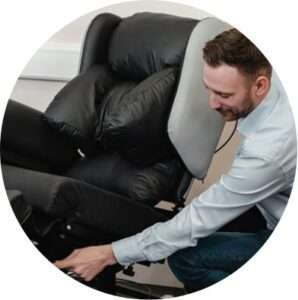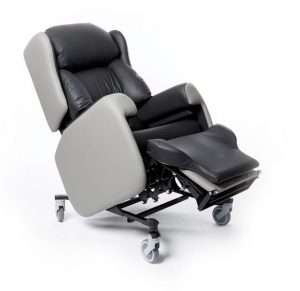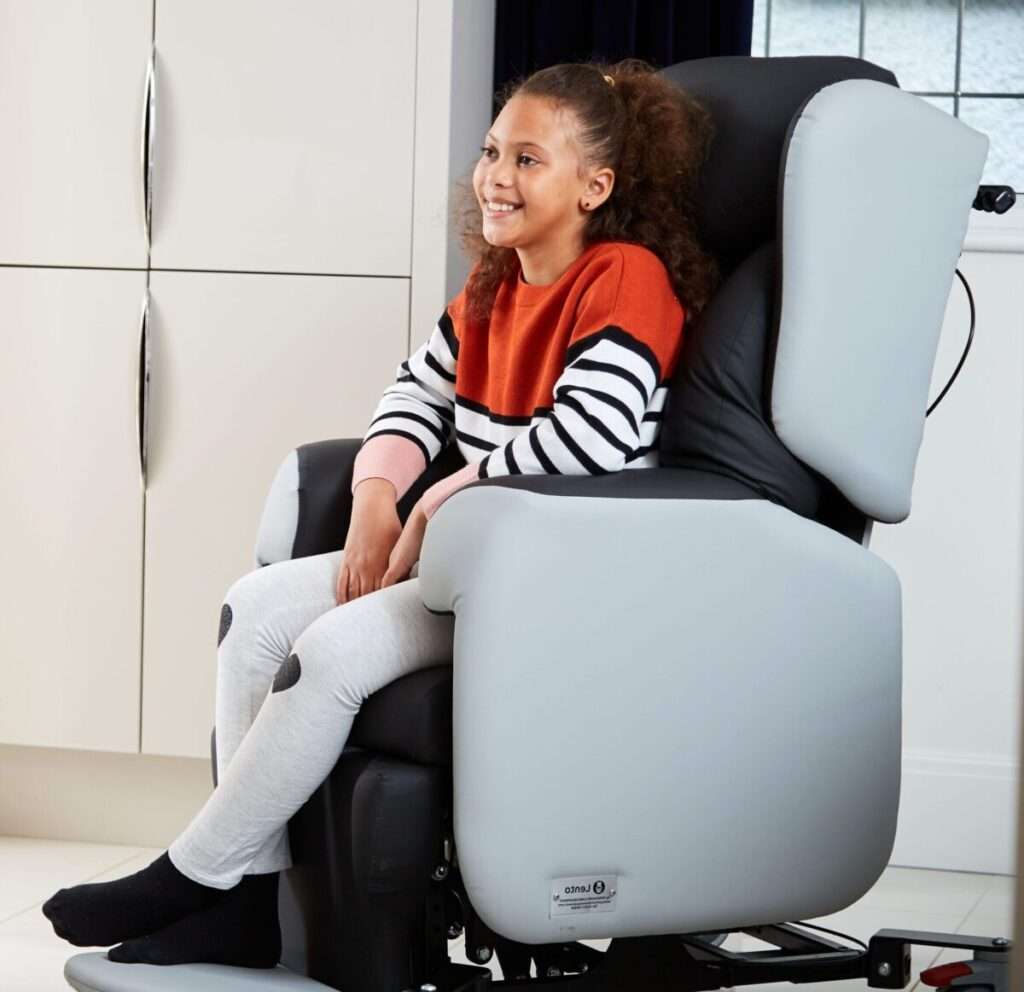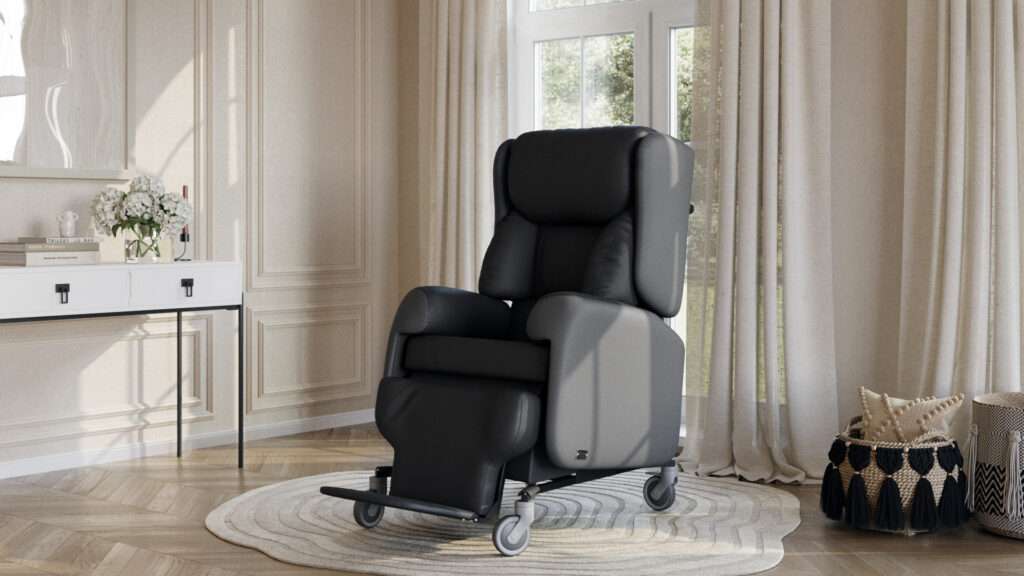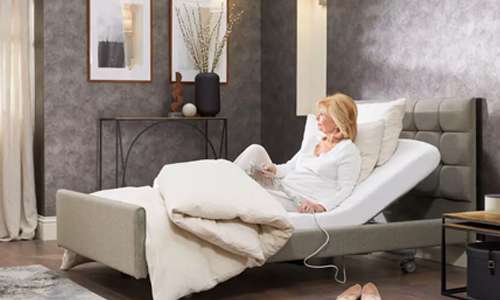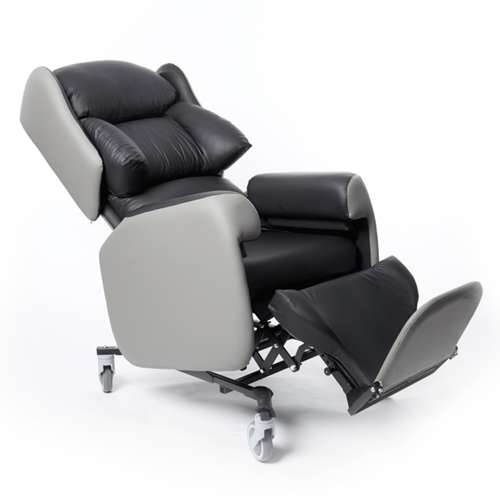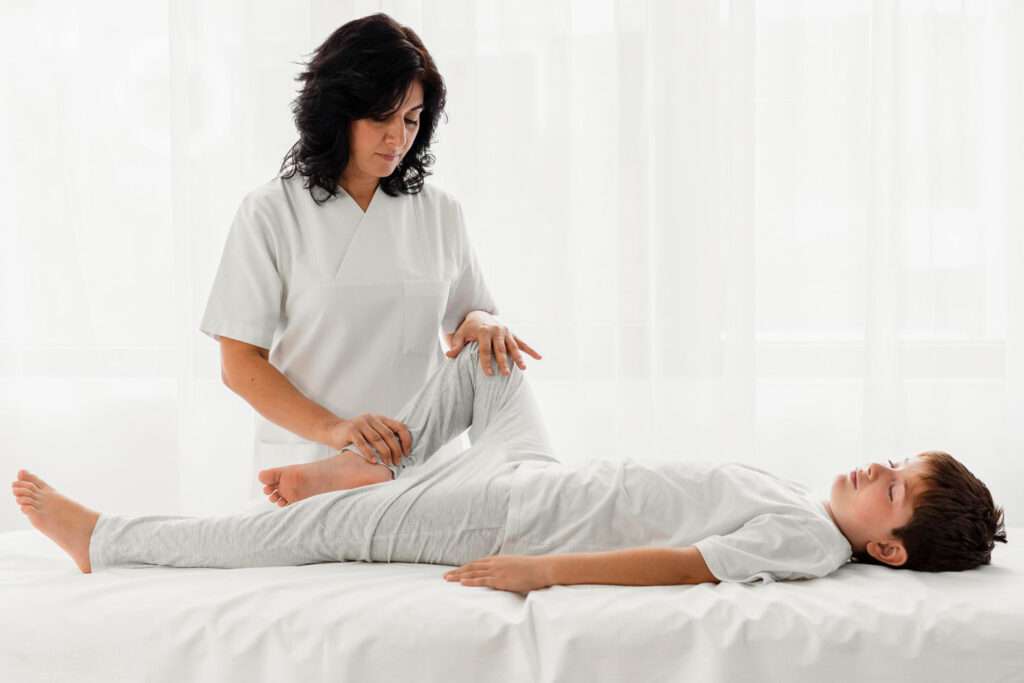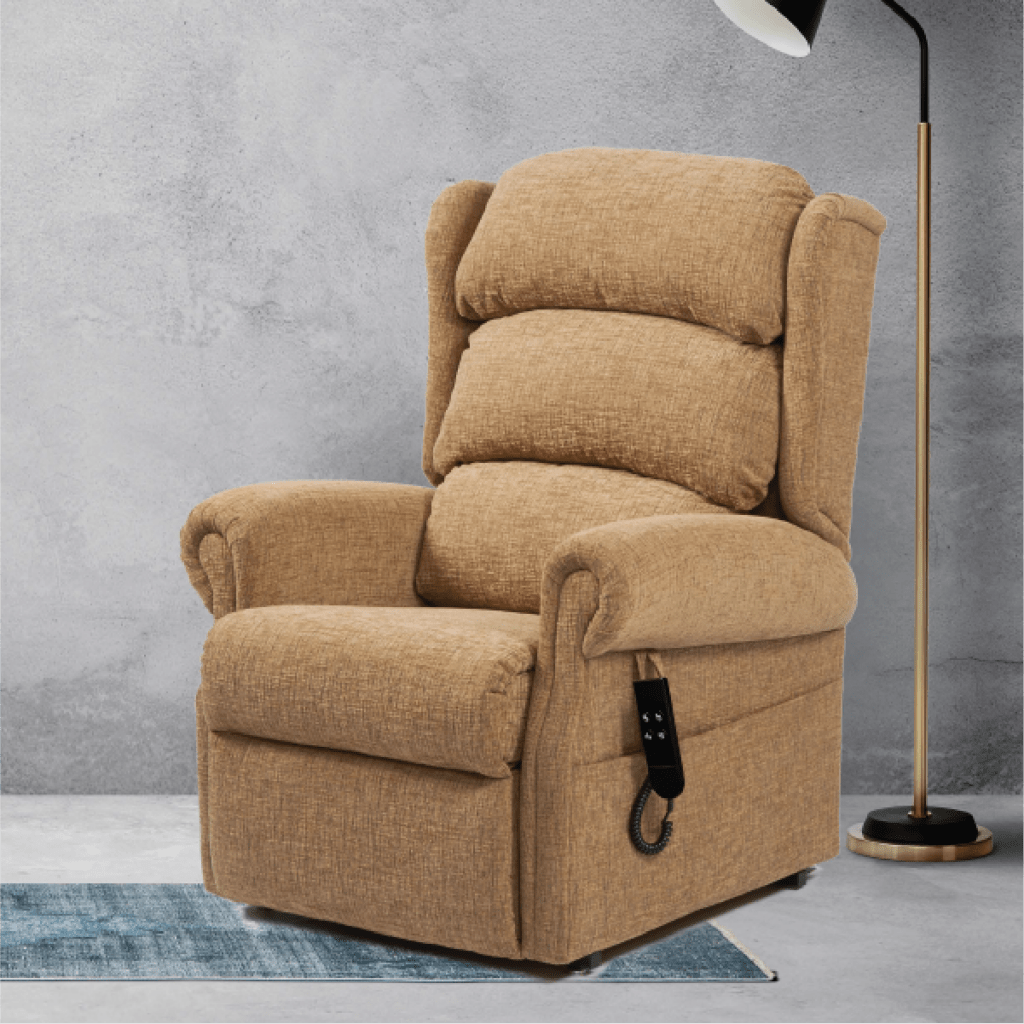Across the UK, thousands of people rely on hoists every day. For people with disabilities that limit their mobility, hoists are incredibly important for maintaining good quality of life, a patient hoist allows a low mobility individual to move from bed to the bath or from a wheelchair to a lounge chair.
Hoisted transfers are used for many daily tasks and being lifted and transferred from a bed to a chair can be a challenging experience for both the individual and their caregiver.
We have supplied supportive seating for disabled and low mobility for years and a question we get asked a lot is:
“What’s the best kind of chair for someone that’s hoisted?”
The short answer is a care chair.
View Our Recliner for Hoisted Patients:
Discover the Lento Care Chair
In this guide, we’ll explain what makes these medical-grade mobility recliners so ideal for the home or hospital care of hoisted elderly or disabled people.
We’ll also give you some top tips for choosing the right care chair for someone.
Jump straight to…
A Medical Recliner Chair on Wheels
If you’re not familiar with care chairs, here’s a quick explanation…
A care chair is a highly advanced type of specialist seating, essentially medical grade recliner chair on wheels.
Other seating options, like riser recliners, are typically used for people who are still mobile but have some difficulties with sitting and standing, posture and pressure care. Whereas care chairs are used for people with more complex needs.
Medical care chairs are considered the best chairs for the care of disabled and elderly users because of their extra support for transfers, repositioning, and postural management options.
There are 3 key features you’ll find on care chairs:
- Tilt-in-space (more on TiS here)
- Raised wheel platform (to accommodate a hoist underneath)
- Back pain & posture support
- Pressure care options
- Medical grade materials
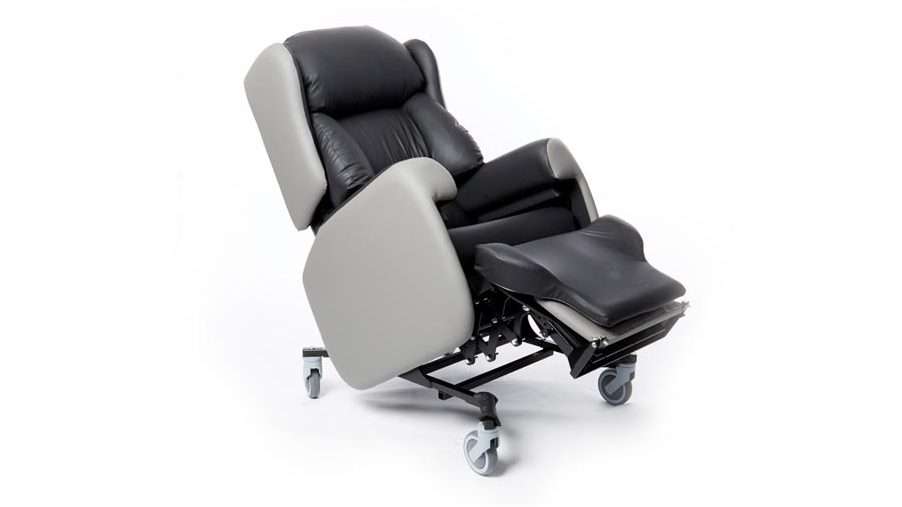
The Lento medical grade care chair also features removable armrests to facilitate side transfers.
We designed the Lento Care Chair with:
- Fully adjustable seat sizing that can be tailored to the user (depth x width x height)
- Removable armrests (for easier side transfers)
- Choice of backrest types
- Additional support cushions & accessories
- Up to 158kg (25 stone) weight limit.
Below, we’ll be taking a further look the benefits of care chairs, for a more detailed explanation, please read our ‘What is a care chair?’ article.
Why are Medical Grade Care Chairs Good for People Who are Hoisted?
The best chairs for disabled, elderly and low mobility people are Care Chairs. The is simply because care chairs are designed for use with hoists.
- Designed with raised ground clearance to fit a mobile hoist underneath the recliner.
- This raised ground clearance will allow for carers to use a hoist to perform transfers if required
We have supplied seating for over 50 years and have found that when we recommend a care chair…it is usually for the home care of a hoisted elderly, disabled or low mobility individual who is hoisted.
Made to be mobile and portable with lots of room for a mobile hoist thanks to their wheels and raised base, these home care chairs are built to make hoisted transfers much easier for everyone involved.
A Medical Recliner Chair Can Reduce the Number of Daily Patient Transfers
During the course of a day, low mobility, elderly or disabled people may need to be hoisted static chair and into a more mobile option like a wheelchair that allows them to get around.
Medical recliners that rest on wheels mean that there is no need to hoist someone out of a chair to move them to another part of the home or care facility.
Simply take off the brakes on each of the wheels and push this wheeled recliner chair where you want to go! This is perfect for home care environments where users may want to be in various rooms across the day and a medical recliner chair on wheels accommodates well for this.
This saves time and energy for carers. There is no need to set a hoist and no physical lifting involved. Just wheel a care chair wherever it is needed.
Crucially, this is also much better for the person being transferred. No matter how good your hoist system is, being hoisted is inconvenient and unpleasant. Lots of people can find the process uncomfortable or distressing.
Being transferred in their chair is much more practical and dignified. It also means people can often be moved from room to room without being disturbed if they are sleeping.
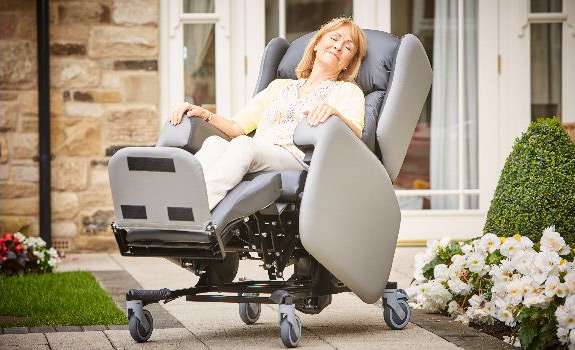
The Lento Care Chair can be moved outside as well as inside. So, users can enjoy different environments without being transferred into a wheelchair.
Care Chairs are Designed for Use With Hoists
With the wheeled base of this portable care chair coming into its own during the day, there are times when a caregiver may need to use a hoist, e.g. to transfer someone into bed. In this situation, a care chair once again makes things easier.
The base of a care chair is raised slightly off the ground — because of the wheels. This means a mobile hoist fits perfectly around the chair.
You can position the base of the hoist right under the chair. This helps to make the transfer quicker, safer, and easier.
Care chairs support people’s underlying medical conditions
There’s more to care chairs than supporting hoisted transfers.
When you’re choosing a chair for someone who is hoisted, you also need to think about the reasons why they are hoisted.
Generally, if someone needs hoisted transfers it’s because they have a medical condition that affects their mobility.
Arrange an assessment
Disabilities and diseases that commonly require a person to be hoisted when providing care include:
These conditions, amongst others, affect someone’s ability to support themselves whilst sitting as well as their ability to stand and move around independently.
A supportive care chair will have all the features and functions needed to properly support the posture and positioning of someone who is immobile.
Here are a few examples:
- People with MND tend to benefit from a care chair that has built-in tilt-in-space.
- By tilting the chair back, they can rest assured that their body is being supported
- This allows them to maintain eye contact and conversation if they can no longer keep their head lifted.
- Having a care chair with reclining backrest helps someone with MD to maintain proper pelvic positioning, even if they have hip contractures.
- Care chairs can have extra accessories added to them to increase and personalise the support on offer
- Cushions lateral support cushions incorporated into the backrest.
- This gives additional support to people with spina bifida who have more C-shaped curvature or slumping.
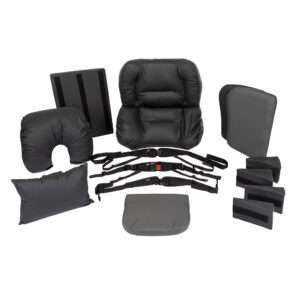
The Lento Care Chair has a range of supportive accessories and chair cushions to meet your specific needs.
Key Features to Look For in a Care Chair
If all care chairs include wheels, tilt-in-space, and tailored seat sizing, how do you choose the right option?
There are two other key features you should look for when choosing a care chair for someone who is hoisted.
1. Manual or Electric Action
Before choosing a care chair for someone who is hoisted, it is important to think about which controls are best for them. On most care chairs these movements can usually be controlled either manually (by a carer) or electronically (using a handset).
- Tilt-in-space
- Backrest recline
- Legrest elevation
Many people will still be able to operate a handset to use the chair themselves. In these cases, electric action is likely the best option. It gives someone much more independence.
However, you also need to consider an individual’s cognitive skills. Someone may be physically able to operate the handset, but they may have cognitive impairments that mean electric action is unsafe.
This is unfortunately a common problem for people with late-stage dementia or Alzheimer’s, in these cases…manual action may be the safest option.
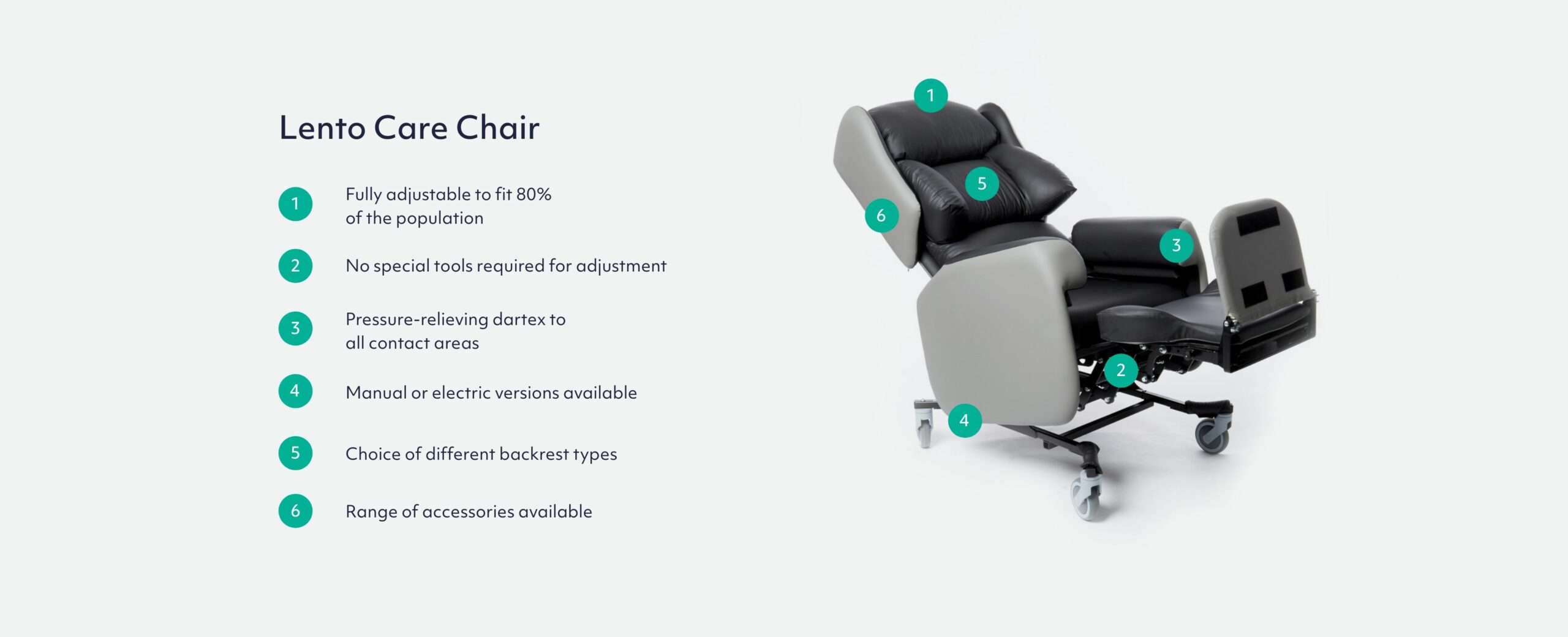
The Lento Care Chair is available with full manual action, full electric action, or a combination to best suit different individual needs.
2. Adjustable Sizing & Pressure Injury Reduction
There is an inextricable relationship between correct Seat Size, Posture and Pressure Care and it is essential for hoisted individuals to get the postural support and pressure relief that their condition requires.
As a result, those looking for a care chair must pick from two options.
- Option 1: You may be able to get a care chair that is custom made — with seat dimensions are measured to be an exact fit for the chair user.
- Option 2: An adjustable medical grade recliner care chair that changes as a complex condition progresses.
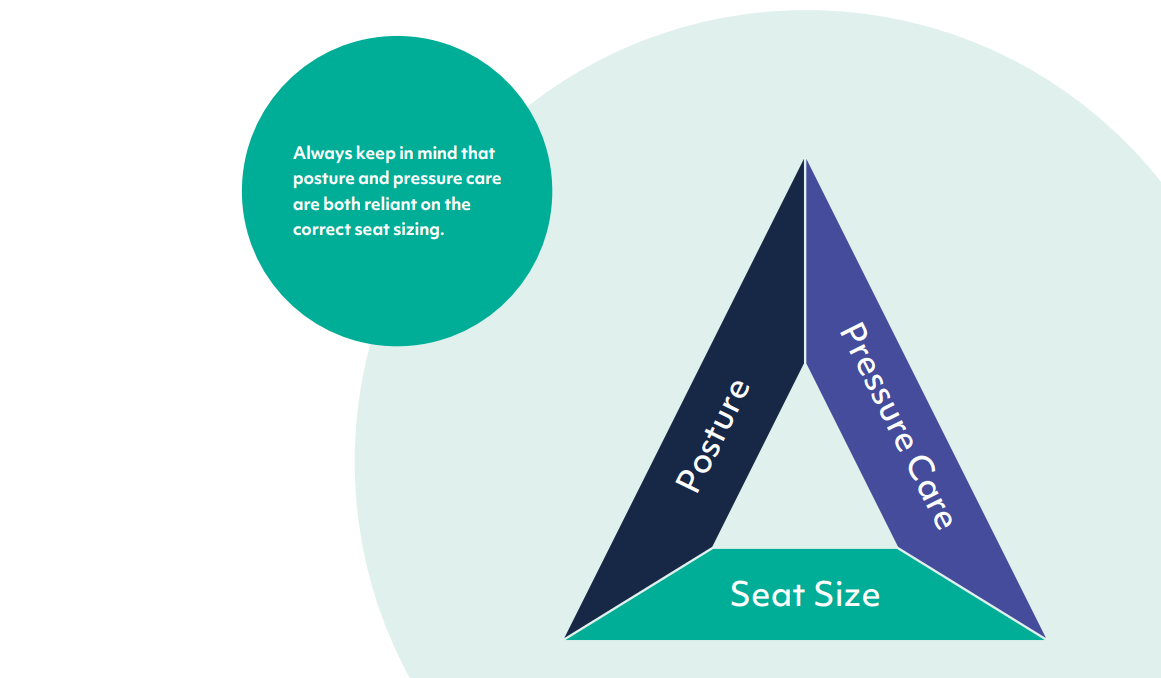
Getting seating measurements correct is the base of a good specialist seating experience.
A custom care chair might initially a great fit, however certain conditions can cause fluctuations in a person’s size and weight…and a highly expensive custom care chair may no longer fit properly.
View Lento Care Chair
But an adjustable chair provides flexibility over a long period of time and for this reason, we recommend choose a care chair with adjustable sizing.
We designed all aspects of the Lento Care Chair to be quickly adjustable without quickly adjusted without the need for tools!
This cuts down long-term costs — you aren’t going to need to replace the care chair after a few years!
Plus, it protects the user from the risk of pressure sores and other injuries associated with poor seat sizing.
Our Favourite Care Chair For Hoisted Individuals
When we created the Lento Care Chair, we wanted it to be the go to medical grade recliner care chair for people who are hoisted and built it to fit 80% of hoisted individuals.
Designed to reduce friction and make caring for elderly, disabled & low mobility users easy, the chair comes with removable armrests for easier lateral patient transfers, fully adjustable seat sizing to find the perfect fit for each individual who uses the chair and options for electric or manual action.
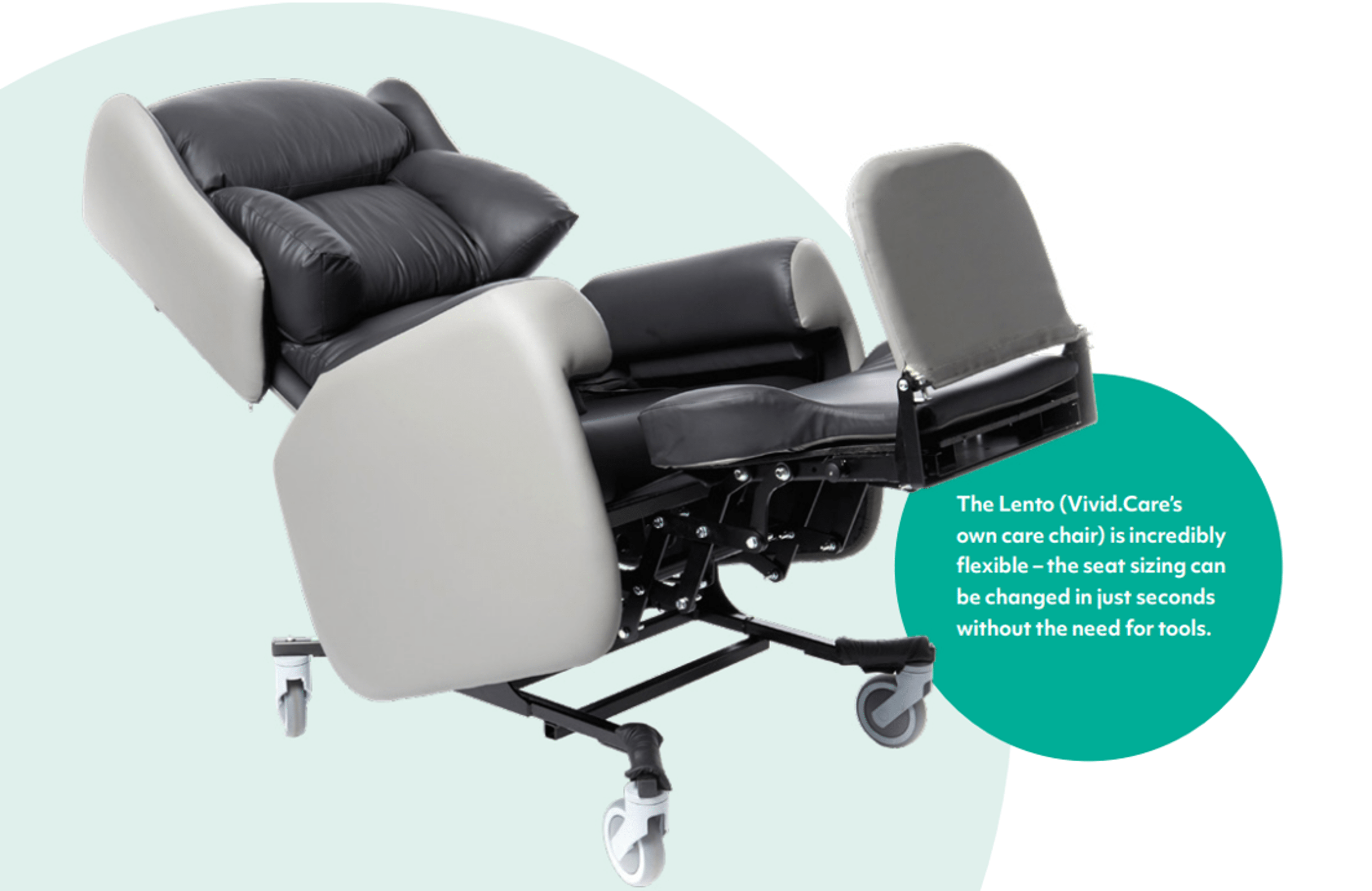
The Lento Care Chair is an adjustable & supportive care chair designed the care of disabled & elderly patients.
Summary:
When looking for specialist seating solutions for the care of hoisted patients, it is important to keep several considerations in mind.
- Will this chair be supportive enough – Does the chair currently have the features and functions necessary to offer support & care to a complex condition.
- Will the chair support them throughout their condition – Some degenerative diseases may mean that someone requires increased support after some time, your chosen chair should accommodate for this
- Does the chair work with a wide range of hoists – Patients with reduced mobility may be hoisted to/from their chair.
View Lento Care Chair
After years of supplying seating to healthcare professionals across the UK, we ensured our Lento Care Chair meets these needs.
-
- Removable armrests for easier lateral patient transfers
- Pressure injury management options, tilt in space & recline movements and electric or manual controls.
- Wide ranging size adjustability so the chair fits a range of users and various stages of their conditions.
- Chair accessories and a choice of backrest options for increased comfort and support.
- A raised wheel base to accommodate a variety of patient hoists & standing aids.
- Durable castors mean this mobile tilting chair on wheels can be taken where required.
More From The Lento Family
Created specifically for the care and treatment of elderly, disabled and low mobility patients in healthcare facilities, community care or at home, the Lento specialist seating range is an range of adjustable chairs that are designed to care for complex conditions; whether personalised to a single users requirements, or for multi user environments.
Our hospital-spec Lento chair is designed with enhanced infection control (contact our team to discuss)
The Little Lento care chair is designed for anyone under 5’ 2” to support an even wider range of people!
Enquire below to try the Lento at home – with a Money Back Guarantee if you aren’t 100% satisfied after 7-days!



